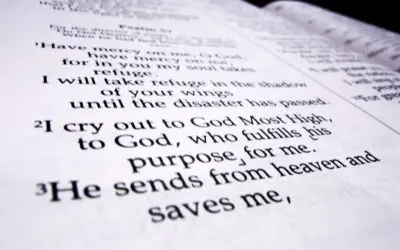Non-denominational churches are a group of churches that aren’t affiliated with a specific denominational group. In other words, they are independent of traditional denominations like Methodist, Lutheran, Baptist, etc. As such, non-denominational churches have a wide array of beliefs and practices, although they are still united by some common beliefs and practices.
Catholicism, on the other hand, is the oldest and most prominent Christian denomination. The term Catholic comes from the Greek word katholikos which means universal. The name implies that the catholic church is the universal body of Christ on the planet. Catholics are known for their distinct doctrines and beliefs which separate them not only from non-denominational but also from other Christian denominations as a whole.
The main differences between non-denominational and catholic are their leadership structure and doctrine. Non-denominational churches do not identify with any denominational, unlike Catholics which follow the Roman Catholic rite and are therefore largely uniform in doctrine and liturgy.
The following are some other important points of contrast between the two denominations.
Beliefs and Doctrines
Non-Denominational Christianity
- Emphasis on Personal Relationship with God
Non-denominational Christians believe that every individual must strive to develop a personal relationship with Jesus Christ. Every Christian is considered a priest which means they have direct access to God. As such, they can develop their relationship with God without having to go through the clergy. Developing a personal relationship is believed to be the most important ingredient of building one’s faith. Christians are encouraged to rely on the Holy Spirit for guidance in Bible study, prayer, and day-to-day Christian living.
- Authority of Scripture
Non-denominational churches subscribe to the Lutheran principle of “sola scriptura” which means scripture alone. The doctrine of scripture alone teaches that the Bible is the inspired word of God and it should therefore be the only source for doctrine and direction in the church. Non-denominational Christians believe the Bible should not be replaced with any ecclesiastical authority or human leader. This creates an environment of various theological perspectives and teachings because different Christians may develop different interpretations of similar texts.
- Core Doctrinal Beliefs
Even though non-denomination have a wide range of doctrines, they still share some core beliefs. These core beliefs include the doctrine of the Trinity, the divinity and deity of Jesus Christ, the atoning work of the cross, the doctrine of heaven and hell, and the preaching of the Gospel to make disciples of all nations.
- Sacraments
Baptism and administration of Holy Communion will differ for individual non-denominational churches. For the most part, communion is seen as a symbol of the ultimate sacrifice of Christ on the cross while Baptism is seen as an outward expression of inward faith. The Baptism can be done through pouring, sprinkling, or immersion depending on the beliefs of the individual congregation
Catholicism
- The Papacy
Catholics view the pope as the successor to Saint Peter, who they believe to be the first Bishop of Rome. As such, the pope is believed to be the divine leader of the global church who therefore has authority on issues of faith and morality. The teachings of the pope that are given when speaking ex-cathedra (from Peter’s chair) are considered infallible.
- Importance of Tradition and Magisterium
Catholicism values church tradition which they consider sacred. The magisterium (comprising a college of Bishops and the pope) is in charge of interpreting scripture in light of church tradition and history. They do this to ensure the preservation of the catholic doctrine. The observance of tradition helps the catholic church to maintain unity through the consistency of theology.
- Sacraments
In catholicism, sacraments are believed to be a suing as well as a means to God’s grace. Each of the seven sacraments is believed to have specific blessings for the recipients. They are Baptism, the Eucharist, Confirmation, Reconciliation, Anointing of the Sick, Holy Orders, and Matrimony. These sacraments play a central role in the spiritual life of Catholics, providing them with opportunities to encounter God’s grace and deepen their relationship with Him.
Worship and Liturgy
Non-denominational congregations are characterized by diverse worship styles. The lack of a centralized governing body means there is no predefined liturgical order that is followed by non-denominational churches. Some congregations use contemporary and informal styles of worship, while others go for a traditional approach e.g. using hymns instead of modern music. But as diverse as the worship styles are, they have one common emphasis – creating an atmosphere where the worshippers feel connected to God.
Catholics have a highly liturgical mass that followers a standardized structure as described in their liturgical books. The mass is typically divided into two parts: the liturgy of the Word and the liturgy of the Eucharist. The liturgy of the word entails reading from the scriptures, preaching of the sermon, and praying for the believers. The liturgy of the Eucharist entails the consecration of the elements of the Lord’s table (bread and wine), and administering it to the believers.
Unlike non-denominational worship, the catholic worship service has lots of rituals that are meant to engage the senses of the worshipers and thereby deepen their sacred experience. Some of the commonly used symbolic signs include the sign of the cross, lighting of candles, burning of incense, and use of sacred images. Catholics may also participate in rituals like kneeling, standing, and making specific gestures during the mass.
Conclusion
To wrap it up, Catholics are highly liturgical as prescribed by their liturgical literature which outlines the order of services and also influences the doctrinal beliefs of the church. Catholics believe in the divinity of the Pope and as such, the pope is considered to be an authority on doctrinal issues in the church. On the flip side, non-denominational churches believe in the authority of Scripture and posit that no ecclesiastical authority can replace the authority of God’s word in matters of doctrine. Also, because non-denominational churches do not have a central governing authority, they have diverse worship styles and doctrines.





